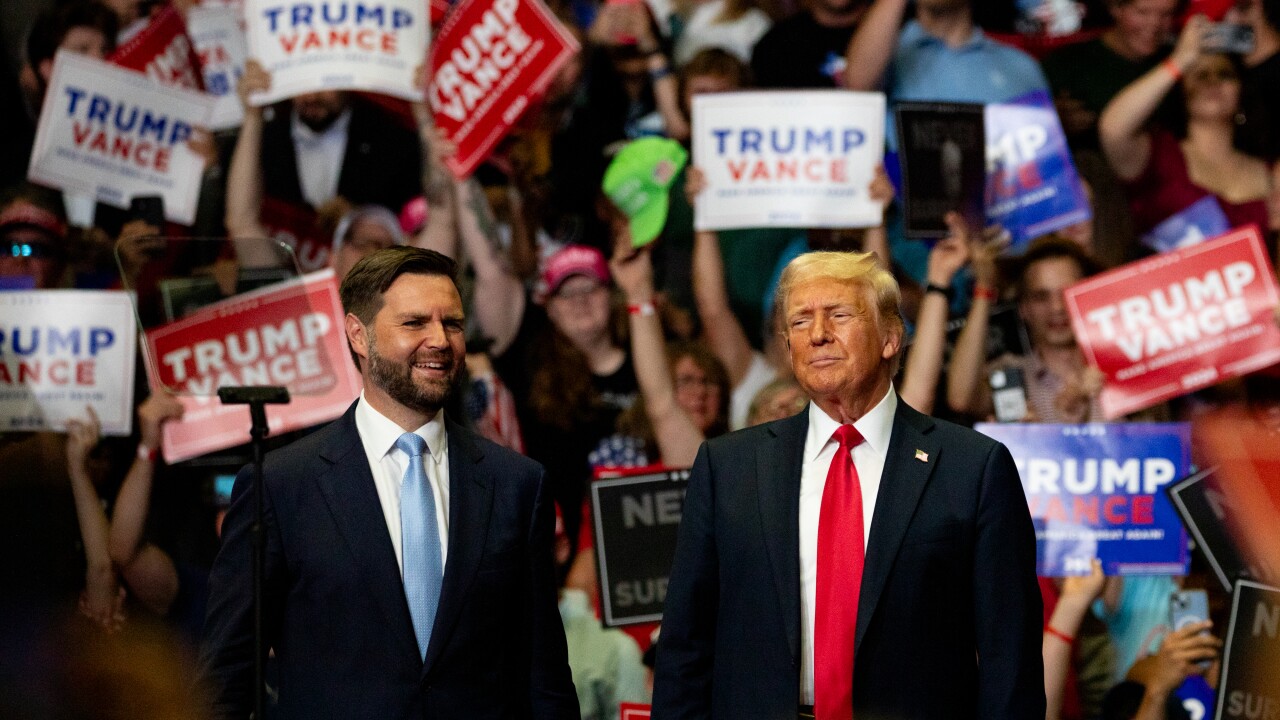-
Treasury market bulls and bears fought to a draw this week as conflicting private-sector data on the health of the US labor market left expectations for another Federal Reserve interest-rate cut in December in limbo.
November 7 -
The shutdown started with a flight into treasury bonds, putting downward pressure on financing costs, but several other developments slowed mortgage activity.
October 1 -
The Treasury market experienced unexpected volatility in April after President Trump announced sweeping tariffs, but recovered after the moves were delayed. Some see that as proof of resilience in the market, but others say it highlights vulnerabilities.
June 4 -
Bond yields are shooting up for the second time in as many months. Federal Reserve Gov. Christopher Waller attributes the volatility to concerns about rising national debt levels.
May 22 -
The group, along with partners Avalanche, B2C2, Galaxy Digital, U.S. Bank and Wintermute created Lynq, a real-time, yield-bearing settlement network.
April 22 -
Economic forecasts include the possibility of higher inflation and slower growth that could stall future cuts to the federal fund rates.
December 5 -
Investors are set to start the week scrambling to decide if President Joe Biden's decision to end his reelection campaign and endorse Vice President Kamala Harris increases or decreases Donald Trump's chances of regaining power.
July 21 -
The Federal Reserve's vice chair for supervision noted that so-called basis trades by hedge funds are highly leveraged and use minimal haircuts. He added that much of this activity is concentrated among just a few funds.
November 16 -
While it's still relatively early to tell how much — if at all — the muni market will be impacted, Kara South, portfolio manager at GW&K Investment Management, said downgrades of certain municipal bonds are likely to follow.
August 2 -
The House Financial Services Subcommittee on Financial Institutions and Monetary Policy debated bills that would lower some banks' regulation and allow banks to pay some Deposit Insurance Fund assessments with Treasuries.
June 6 -
In brief remarks about the Federal Reserve's handling of COVID-19 crises, the governor said the central bank's asset-buying program is taking longer to unwind than its emergency lending facilities.
March 3 -
The approach could work as long as the Fed were to add certain thresholds.
July 30 Sit Fixed Income
Sit Fixed Income -
As inflation fears put upward pressure on 10-year Treasury bonds and mortgage rates nationally, borrowers could start to take more notice of what lenders are charging them locally.
February 20 -
Financial firms have mostly shrugged off the government's budget woes, but Washington's gridlock might pose a bigger risk than they think.
January 22 -
Banks are swapping out long-term holdings for short-term securities to manage interest rate risk. But in the process, they are sacrificing yield — and ammo they might need to pay more for deposits to retain customers.
October 24












